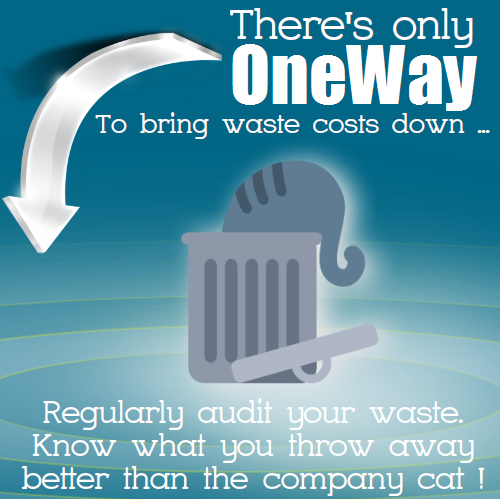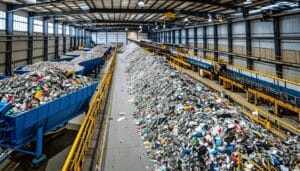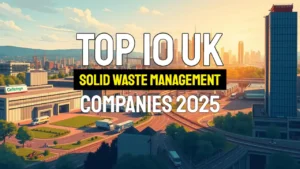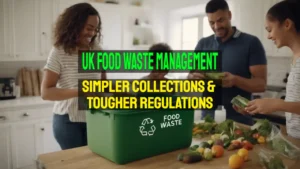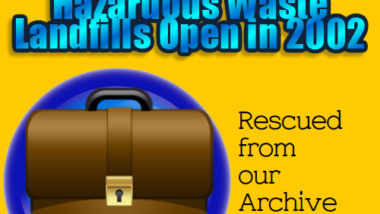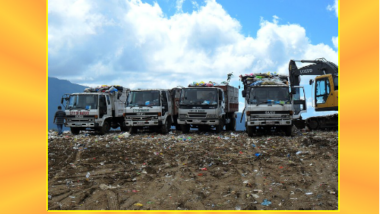We make the case for Waste Reporting and Auditing to offset and reduce rising landfill costs (especially land fill tax bills). Such costs could be an expensive overhead, and waste collection costs are likewise a significant expense as well and continually increasing.
Any type of approach which minimizes waste disposal costs, for any business, as well as keeps adapting to changes as a business develops, must definitely be worth putting a significant investment of time into.
We know that most businesses have already purchased waste management audit services, and quiet possibly yours has as well. As the probability is that you will already have run into a waste audit before. So, you maybe consider that you have “Been there!”, and well as, “Done that”, and you make think that there is; “No need to worry about that any more”.
If so, that's a typical mistake!
Watch our video below, and we will explain this more clearly:
To see this in a larger window, on the YouTube website, click here for this “Waste Reporting and Auditing” video.
What companies do, and how they use incoming raw materials tends to be changing all the time, at the same time, new money-saving waste-management technologies emerge.
In industry there has never been a time of more rapid innovation, and change. That means that regularly keeping an eye on, materials in, as well as waste out, water use, as well as heating needs is essential to be on top of cost trends and manage them.
Top companies are making use of advanced data-capture as well as the latest reporting methods, with their waste reporting in particular being high on their list of priorities.
The following video presents this message in a slightly different way from our first video above, this time within a whiteboard type video:
Many companies take the view that competition is so fierce that, the only means that they can continue to compete for work worldwide is by keeping constantly in touch with all their business costs.
But, that alone is not sufficient, the data needs to be analysed and acted upon by experts in each filed. That's where partnering with a waste management company, and ensuring that the data is regularly audited for best practice and cost savings, can be vital to keep that expenditure as low as possible.
So, how should waste company partnering, be integrated into a company's administrative structure, in a way that will bring savings, and also benefit the environment?
That's simple!
Partnering waste management companies enables them to determine where waste treatment and disposal costs can be reduced, by reducing waste created at source, and also taking full advantage of their specialist knowledge of the latest waste technologies when no further minimisation in waste, or re-use, is possible.
Even if a company is currently operating well in this regard a recurring reporting procedure, can verify to be a large benefit.
Additionally, by keeping track of the important things that you can not reduce further, they could typically identify opportunities to make your waste help you.
That's correct, we are talking about turning waste into an asset!
For instance, the majority of company managers, simply don't understand to what extent the waste management industry is developing new methods, and new things to do with what was once waste. An increasing number of exciting and little publicized technologies are now becoming available.
As a matter of fact, waste management companies are implementing systems right now that could transform a summer's waste, into heating energy resource for the winter months.
High waste tipping charges have actually gotten to a point where they exceed other disposal method. They are so much higher that they are driving technical investment, which is pushing the minimise/ re-use/ recycling economic climate onward quite rapidly.
So, exactly what is the method we recommend to ensure that the most recent waste management breakthroughs flow through quickly to benefit businesses? How do businesses make sure that they are benefiting from such advances, ahead of their competitors?
It is, we believe only attained, via the route of regularly updated waste-reporting, as well as the pro-active assistance of a waste management partner company.
So, why not make some telephone call to your favourite waste management company now, and allow them to bring you up to date on what they could supply you with in the way of likely future cost savings?
We suggest that you find out more from a waste management company that offers this service, such as Country Wide Waste.
Revolutionizing Waste Recovery: Latest Separation And Sorting Innovations
Waste recovery is changing fast, thanks to new separation and sorting technology. This tech helps us sort trash better, so we can recycle more things. For example, Stadler has built a big plant in Spain for VAERSA that makes recycling easier and smarter. Keson is finding new ways to deal with old tyres, helping both […]
Top 10 UK Solid Waste Management Companies 2025
The UK waste management sector stands as a vital industry worth billions of pounds. The top UK Solid Waste Management Companies are the leading waste management firms in Britain. These companies handle millions of tonnes of rubbish each year. The industry has transformed significantly over the past two decades through strategic mergers and environmental innovations. […]
Ramp Method of Waste Disposal – Landfill Guide & Techniques
The ramp method optimizes landfill operations by creating an inclined surface, allowing efficient waste compaction and daily cover application. Unlike traditional methods, it requires minimal excavation, reducing costs and extending landfill lifespan. Proper implementation and equipment maintenance are key to effective ramp method performance in various terrains…
The Future of UK Food Waste Management – Simpler Collections and Tougher Regulation
The future of UK food waste management will be a big push toward higher recycling rates through simpler collection and far greater consistency across the nations, helping citizens understand how to be green and recycle more organic waste. As the UK continues to advance its environmental goals, recently announced government policies aimed at simplifying waste […]
